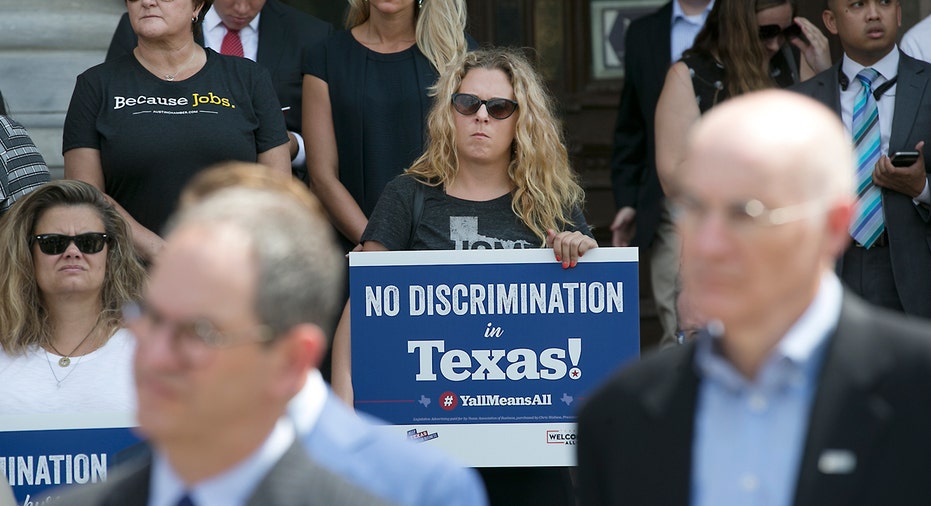Texas bathroom bill: tensions flare as state senate starts debate

Hundreds of people, including LGBT activists and business leaders, are expected to urge a Texas Senate panel on Friday to scrap legislation they deem discriminatory because it would limit bathroom access for transgender people.
The Republican-dominated Senate will hear public testimony as it begins consideration of the bill, the most closely watched item on the state's agenda during a 30-day special session.
So-called "bathroom bills" have become a flashpoint of U.S. culture wars, with social conservatives saying they protect public safety and civil rights activists saying the measures allow government-sanctioned bias against transgender people.
During the regular session that ended in May, the Texas Senate easily passed such a measure. But it died in the state's House of Representatives under pressure from pro-business Republicans.
Texas House Speaker Joe Straus, a moderate Republican who steers that chamber's agenda, has said such measures are unnecessary and raise worries of economic boycotts and event cancellations, which would harm the economy.
Political analysts expect a similar pattern for the special session, with the Senate passing a bill and Straus trying to run out the clock to stop the legislation.
One measure under consideration is Senate Bill 3, which says restrooms, showers and changing facilities in places such as public schools "must be designated for and used only by persons of the same sex as stated on a person's birth certificate."
When a bathroom bill was introduced in the regular session in March, hundreds of people lined up for a nearly 21-hour Senate hearing, with the bulk of public testimony coming from those opposed to the bill.
Texas Values, a social conservative group that backs a bathroom bill, has called on supporters to speak up.
"The radical Left and LGBT lobby will certainly be out in full force again. We must let our state leaders hear loudly from Texans across that state that we support common sense legislation to keep men out of women’s intimate facilities," it said in an email alert on Thursday.
A similar law in North Carolina, partially repealed in March, prompted the relocation of sporting events and economic boycotts that were estimated to have cost the state hundreds of millions of dollars.
The stakes are far higher in Texas. The state could lose about $5.6 billion through 2026 and businesses could find it difficult to recruit top talent if such a measure is enacted, said the Texas Association of Business, the state's leading employer organization.
(Editing by Colleen Jenkins and Bernadette Baum)



















